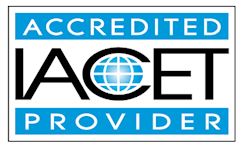Healthcare Informatics: An Introduction
Ed-Next
Summary
- Exam(s) / assessment(s) is included in price
Overview
Computer applications are the backbone of today's healthcare. Healthcare Informatics involves the obtaining, storing, retrieving, and using of healthcare information to nurture better collaboration among a patient's various healthcare providers. As the healthcare and technology fields continuous to grow, healthcare informatics is considered one of the number one job opportunities in an emerging industry. Our Healthcare Informatics course will provide an organized approach to introducing the major components of computer applications used throughout the industry today.
Course media
Description
After completing this course, you should be able to:
- Define the basis of informatics and system analysis
- Identify clinical reporting data and management
- Recall the inner workings of clinical networks
- Recognize disaster recovery methods and security measures
Healthcare Informatics: An IntroductionModule 1 Chapters
The Basis of Informatics and System Analysis
Nursing Informatics combines nursing, information, and computer sciences to manage information required for use in the nursing practice. In module one, we will look at the role of the nursing informatics specialist and how they apply the functions of clinical systems to arrange patients’ medical information. Also included in module one is an overview of database applications such as user interface, data management systems, and databases.
- Clinical Informatics Applications
- Inside a Computer
- A Clinical System
- Object-Oriented Design
- Clinical Database Analysis
Healthcare Informatics: An IntroductionModule 2
Clinical Reporting Data and Management
In module two, we will examine clinical data reporting and how to specify criteria and translate physical data into a working database. Also included in module two is an overview of project management and the tools needed to apply a methodology that turns into reality. The project manager uses open problem-solving techniques to address challenges that may arise during a project. We will look at how to incorporate all team members in creating collective goals and meeting expectations as a whole.
- Reporting Language
- Insert and Retrieve Information
- Introduction to Project Management
- Agile Project Management
- Management Techniques
Healthcare Informatics: An IntroductionModule 3
Clinical Networks and Vendor Negotiations
It is important for the nurse informatics specialist to have a working understanding of how a computer network functions and how information is transmitted over the network. Module three will look at the physical and wireless connections and examine how the roadways connect houses and communities together. Also included in module three, is a closer examination of the tasks performed by employees and vendors and the role of each as it applies to daily informatics management.
- Encoding Data
- Network Packets
- IP Addresses
- Conflict Resolution
- Working the Contract
Healthcare Informatics: An IntroductionModule 4
Disaster Recovery and Security
Module four will focus on disaster and systems recovery. Catastrophic events may occur. The informatics specialist should understand how to handle records during disaster mode. We will look at concerns and risks involved during this instance and how to handle not being able to process patient information and medical orders during this time. Since today’s medical records are electronic, and stored in a central location, it is imperative that security is set into place to protect this information. Module four will examine key vocabulary used for storing and accessing records in these electronic formats. .
- Clinical Disaster Recovery
- Disaster Recovery Operations
- Security Audit
- Security on a Wireless Network
- Computer Viruses
Ed4Online has been approved as an Accredited Provider by the International Association for Continuing Education and Training (IACET). In obtaining this accreditation, Ed4Online has demonstrated that it complies with the ANSI/IACET Standard which is recognized internationally as a standard of good practice. As a result of the Accredited Provider status, Ed4Online is authorized to offer IACET CEUs for courses and programs that qualify under the ANSI/IACET Standard.
You will earn 2.4 IACET continuing education credits by completing this Ed4Online course. This course is 24 contact hours which equals 2.4 CEUs based on the IACET standard. The International Association of Continuing Education and Training is the highest quality worldwide standard for Continuing Education Unit.
The Continuing Education Unit (CEU) was created by IACET as a measurement of continuing education. One (1) IACET CEU is equal to ten (10) contact hours of participation in an organized continuing education experience under responsible sponsorship, capable direction, and qualified instruction. Under IACET's care, the IACET CEU has evolved from a quantitative measure to a hallmark of quality training and instruction
Who is this course for?
Anyone interested in health and care
Requirements
No prior qualification required
Career path
Application of principles learnt in this course
Reviews
Currently there are no reviews for this course. Be the first to leave a review.
Legal information
This course is advertised on reed.co.uk by the Course Provider, whose terms and conditions apply. Purchases are made directly from the Course Provider, and as such, content and materials are supplied by the Course Provider directly. Reed is acting as agent and not reseller in relation to this course. Reed's only responsibility is to facilitate your payment for the course. It is your responsibility to review and agree to the Course Provider's terms and conditions and satisfy yourself as to the suitability of the course you intend to purchase. Reed will not have any responsibility for the content of the course and/or associated materials.



